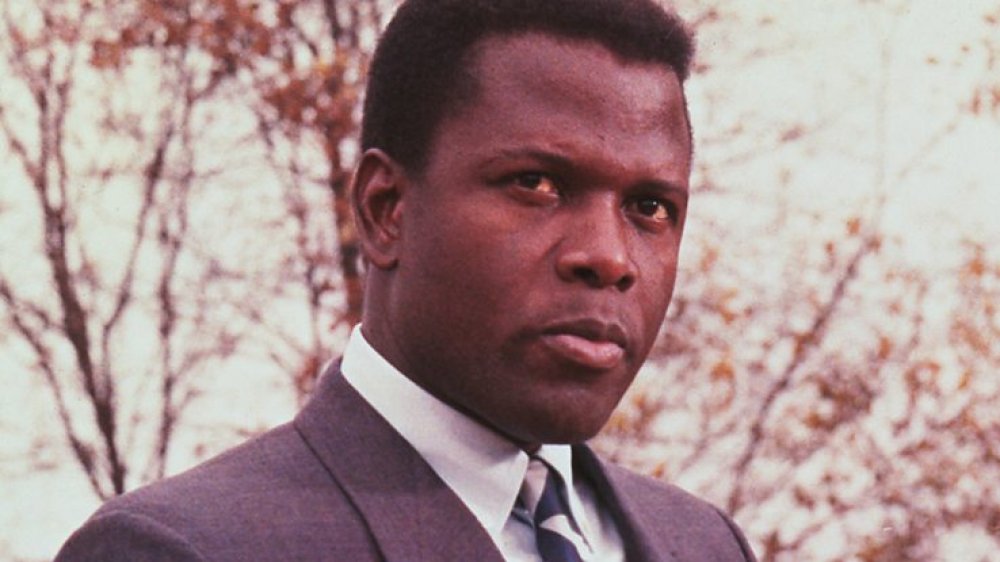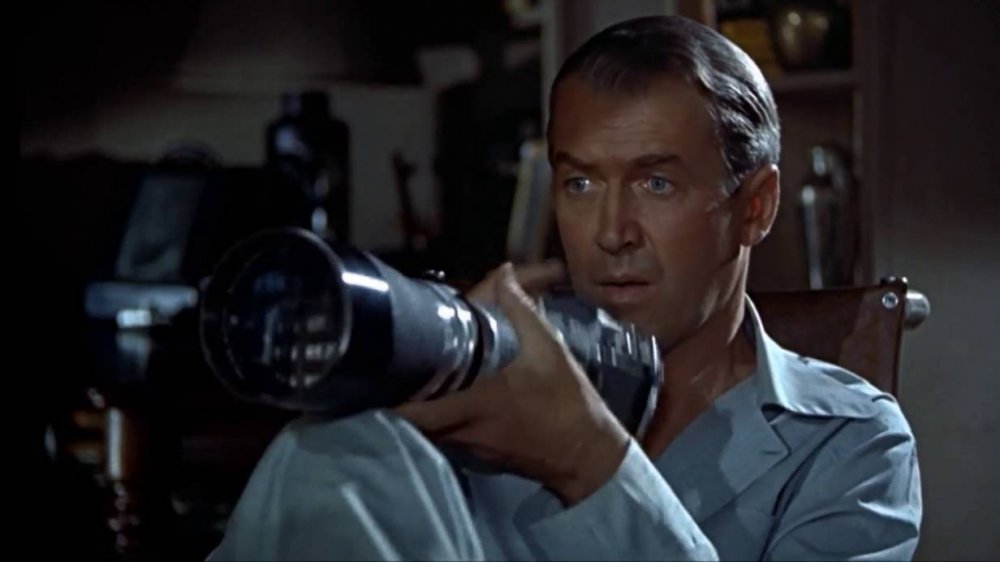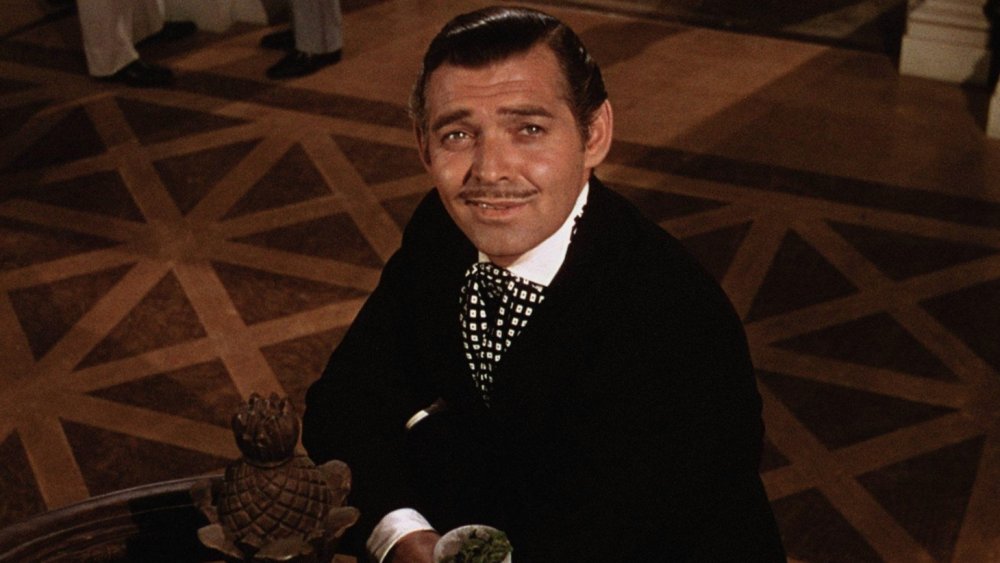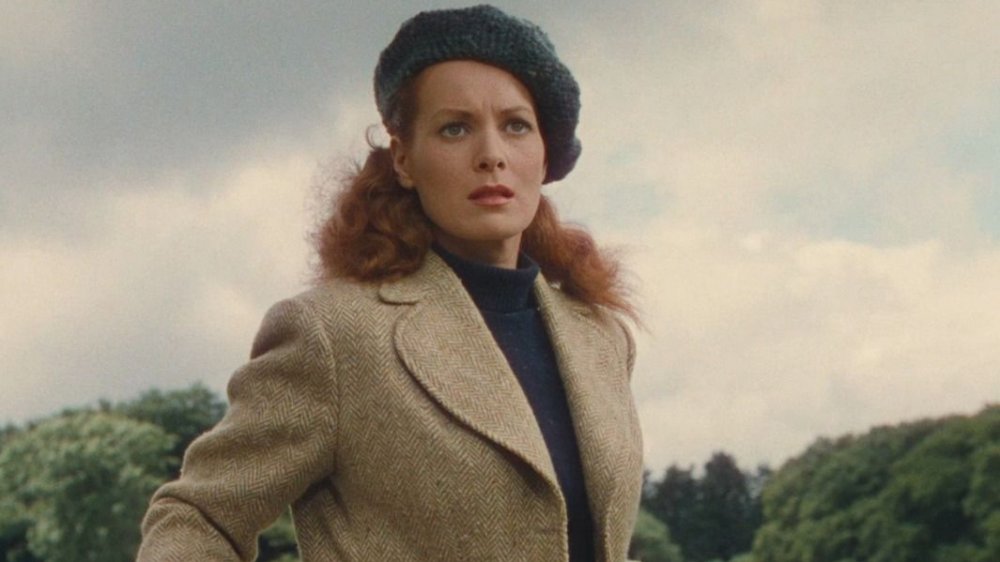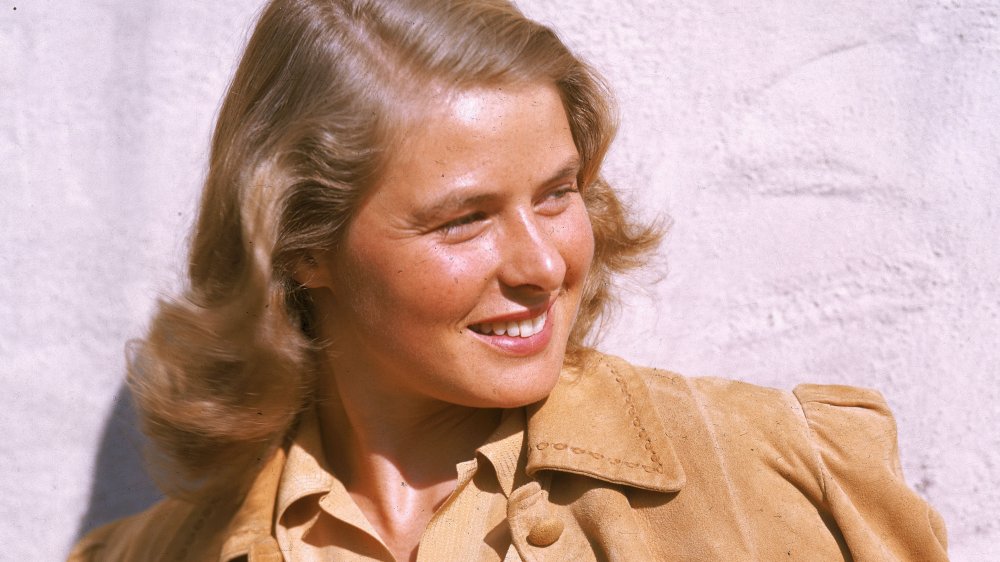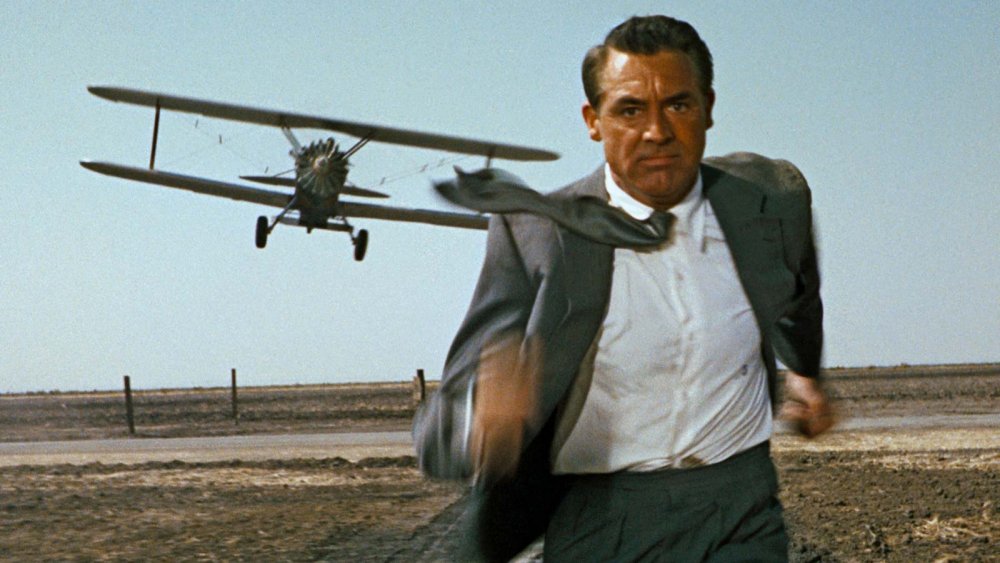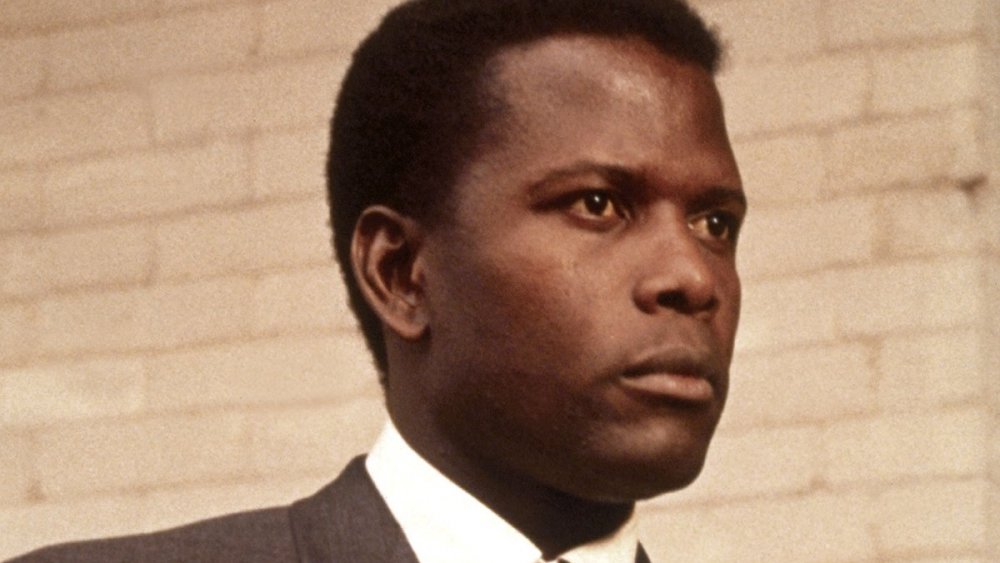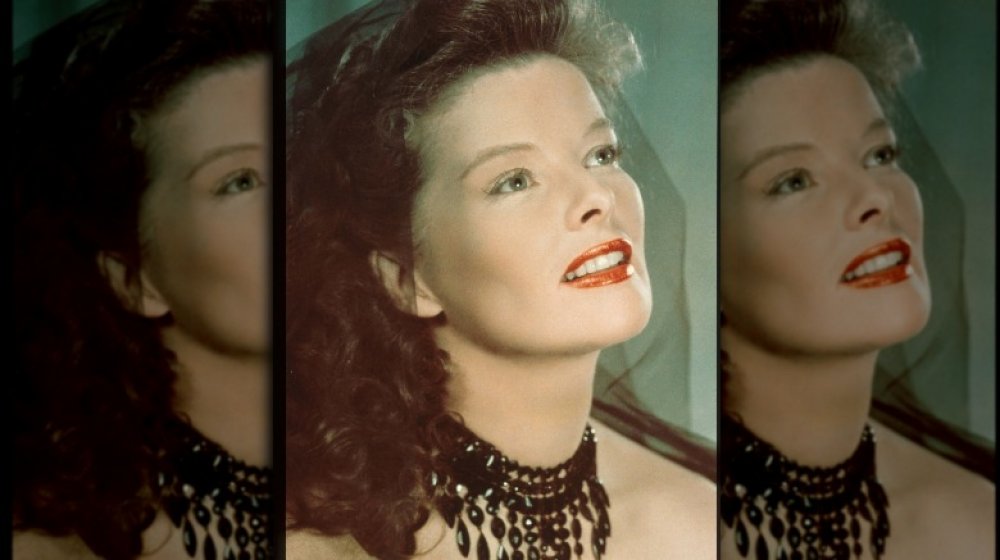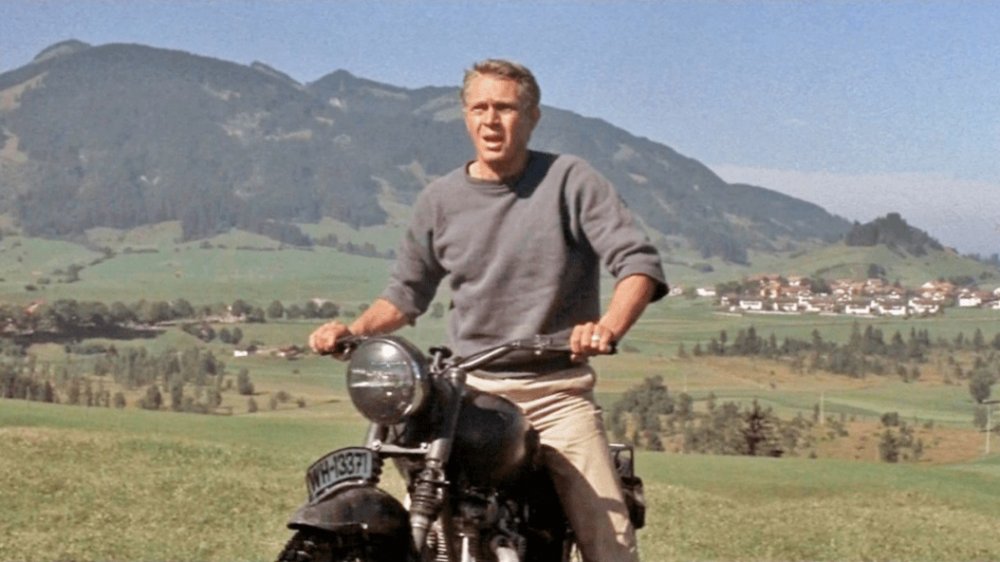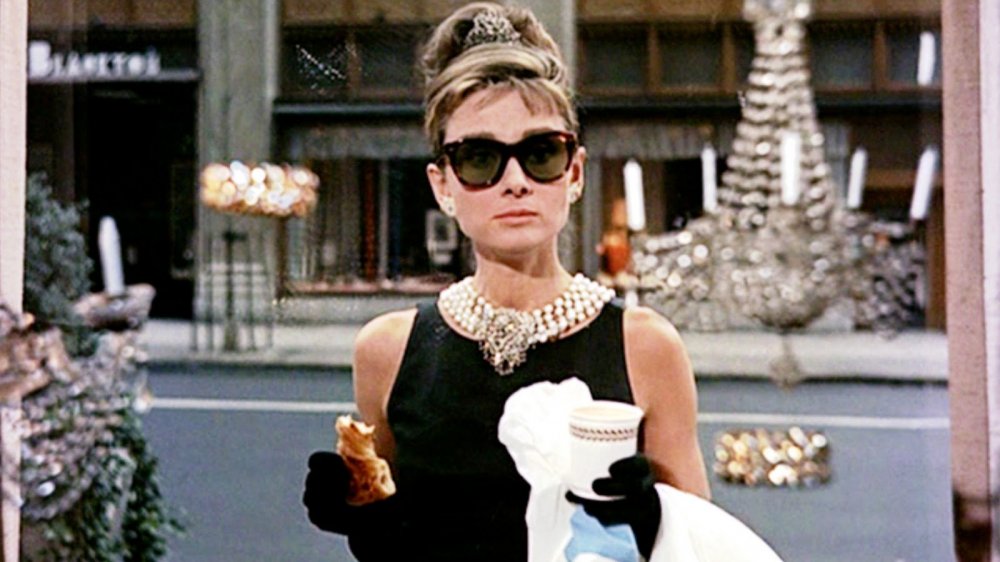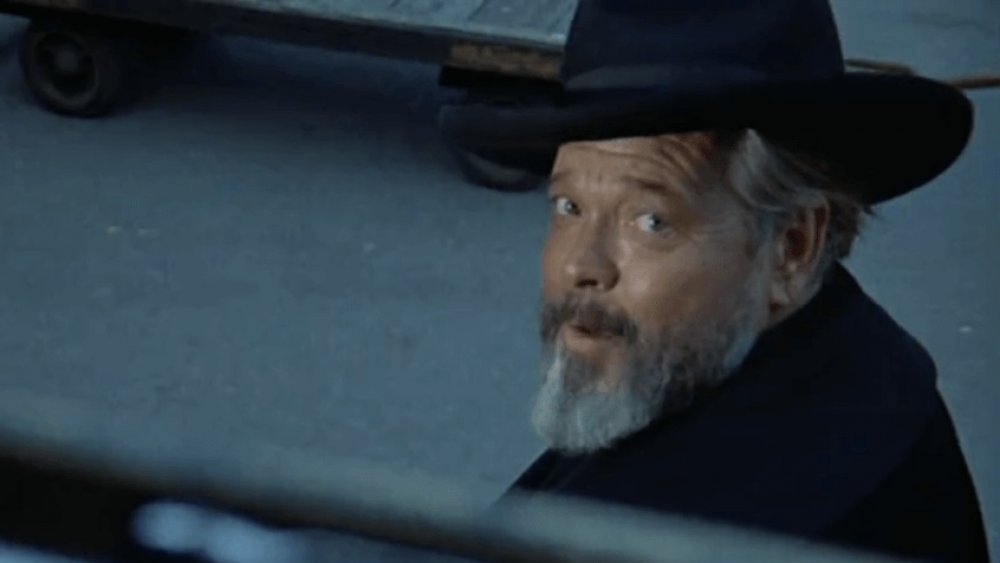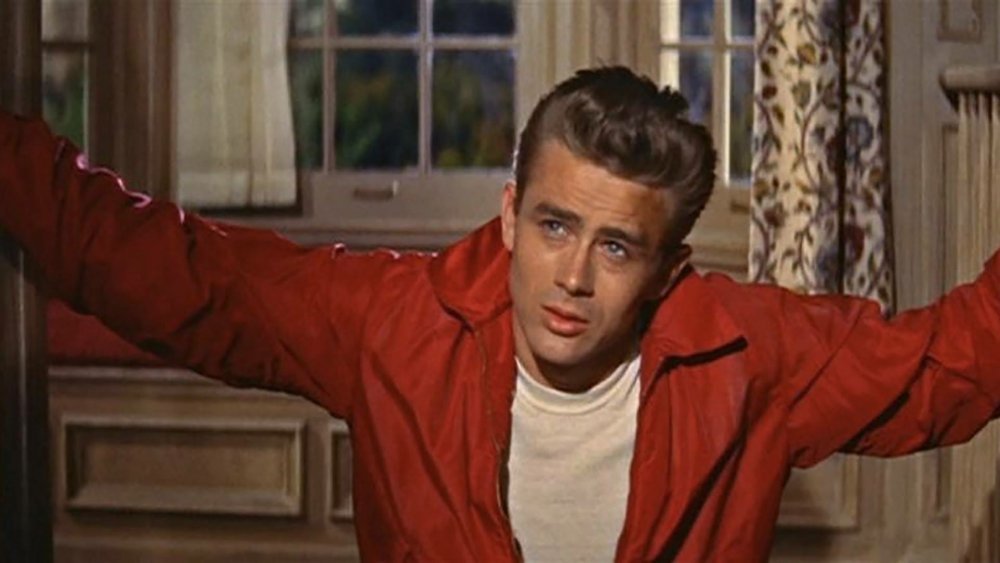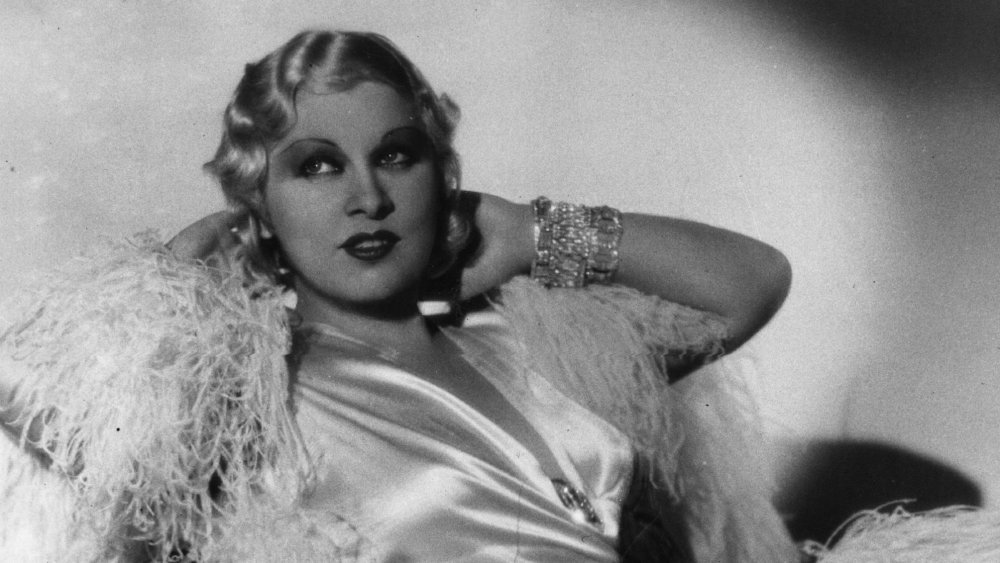Legendary Actors Who Deserve A Biopic
When Renée Zellweger won an Academy Award for playing Judy Garland in Judy, she joined the ranks of contemporary actors who've played legendary movie stars, such as Faye Dunaway in Mommie Dearest, Robert Downey Jr. in Chaplin, and Michelle Williams in My Week With Marilyn. And that's just scratching the surface.
It's not surprising the "Hollywood biopic" sub-genre is so popular. Hollywood is ravenous for content, and biopics supply a made-to-order movie with a built-in story about a famous person. They're the original IP, but since it's a true story, you don't have to spend millions to buy the rights! And if the biopic is about a famous movie star, even better! After all, there's nothing Hollywood loves more than Hollywood.
Sure there's some professional courtesy involved (you don't want your movie to be too critical, especially if one day they do the same to you), but who can resist? For one thing, movie star biopics are Oscar-baity. Plus, it gives an actor the chance to play a hero they grew up loving on the big screen. And so as long as Hollywood is going to make movie star biopics, we have some suggestions. Here are the legendary actors who deserve a biopic.
James Stewart lived a wonderful life
James Stewart was a badass. Badass may seem like a strange way to describe the folksy, tongue-tied, thin-as-a-rail actor most famous for talking to an invisible rabbit and taking advice from an angel without wings ... but it's absolutely true. Stewart found fame on Broadway and Hollywood, starring in classic films like Vertigo, Rear Window, and It's a Wonderful Life, and he won an Academy Award for Best Actor for The Philadelphia Story, but he was drafted into the Army during the height of his stardom. Stewart didn't seek a deferment. In fact, when the Army said he was too skinny, he packed on the pounds and became an Army Air Force pilot.
Turns out he was even better at being a hero than he was at being a movie star. He flew 20 combat missions and rose to the rank of colonel. He continued to serve in the United States Air Force Reserve, rising to the rank of brigadier general in 1959, which makes him the second highest-ranking actor in military history, behind only President Ronald Reagan, who was elected as commander-in-chief. Besides his Oscar, Stewart was awarded two Distinguished Flying Crosses, the Presidential Medal of Freedom, and several more. Jimmy Stewart's Hollywood superstardom and World War II heroism proved it truly is a wonderful life.
Clark Gable was the 'King of Hollywood'
"The King of Hollywood," Clark Gable's life was even more interesting than Rhett Butler's, who he played to perfection in Gone With the Wind. Gable was the journeyman son of an Ohio oilfield worker, and he went out west to break into movies, despite his gap-toothed grin and big ears. Gable established himself as a rare blend of "man's man" and "ladies' man," and by the early '30s, he was acting opposite Greta Garbo, the biggest movie star at the time.
However, Gable bucked the system and nearly sank his career by refusing a role at top studio MGM, who sent him "poverty row," Columbia Pictures, to work with Frank Capra on It Happened One Night. But the movie won him an Oscar and made him a major star. Shockingly, Gable turned down his most famous role, Rhett Butler, but he succumbed to public demand and received top-billing in the most successful movie ever.
Gable's life kept getting better, as he married fellow A-lister Carole Lombard, establishing the original Hollywood power couple. But their happiness was short-lived, as Lombard died in a plane crash in 1942. Racked with grief, Gable joined the Army Air Corps despite being well past draft age, rising to the rank of major. After the war, he returned to A-list status, but he lacked his former spark. Gable died days after completing his (and Marilyn Monroe's) last movie, The Misfits. Headlines were fitting: "The King Is Dead."
Maureen O'Hara was a starlet who took on scandal sheets
Maureen O'Hara lived the American dream, but she also suffered an American celebrity nightmare ... but emerged stronger. Born the second of six children in Dublin, Ireland, O'Hara began performing as a child. Fate intervened when she was spotted by an American singer in a hotel and invited for a screen test in London, where she got a job working for English actor Charles Laughton's production company. O'Hara went out west when Laughton sold her contract to RKO Pictures to save his company from bankruptcy. O'Hara starred in director John Ford's Best Picture-winning How Green Was My Valley and became part of Ford's famous repertoire, starring in several films opposite Hollywood icon John Wayne in classics like Rio Grande and The Quiet Man.
However, O'Hara learned that being a Hollywood movie star had a dark side. She exposed the hush-hush "casting couch" practices in the 1940s and sued paparazzi tabloid Confidential in 1957 for publishing a story about the then-married O'Hara being in the arms of a Mexican politician in Grauman's Chinese theater. O'Hara married a brigadier general in 1968, and together, they managed a small airline in the Virgin Islands, which she took over after his death. The independent, Irish-born firebrand was ahead of her time in taking on Hollywood's sexist culture. In an age of #MeToo and #TimesUp, her story deserves to be told.
Ingrid Bergman's legendary life deserves a biopic
Ingrid Bergman starred in some of the greatest movies of Hollywood's Golden Era and survived a scandal that could've ended her career. Born in Stockholm, Sweden, Bergman trained for a year at the prestigious Royal Dramatic Theatre School before landing roles in the Swedish film industry. In 1939, she starred in the Hollywood remake of one of her biggest Swedish films, Intermezzo, which became a box office hit. Bergman became a star in 1942 with her role in Casablanca, one of the most famous movies ever. She parlayed her fame into starring roles for Alfred Hitchcock in Spellbound and Notorious, and she nabbed an Academy Award as the woman whose husband attempts to drive her insane in Gaslight, which was so significant it inspired a psychological term, "gaslighting."
However, in real life, it wasn't a man that tried to gaslight Bergman but the media. While filming Stromboli in 1950, Bergman had an affair with her director, Roberto Rossellini, and she gave birth to a son before obtaining a divorce. The scandal resulted in Bergman being effectively banned from Hollywood, and a U.S. senator even said she was "a horrible example of womanhood and a powerful influence for evil." Wowza. Bergman made films in Europe before her Oscar-winning return to Hollywood in Anastasia. Bergman's story of talent triumphing over tawdriness would impress even the world-weary cynic Rick Blaine.
British-born Cary Grant was an American icon
Cary Grant was Old Hollywood's ultimate self-made man, literally. He transformed from a Cockney stage performer into the personification of suave, debonair, American masculinity, despite being born into poverty across the pond. At age ten, Grant was told his mother had died when in fact his father had committed her to an institution, which Grant didn't discover until adulthood. Grant ran away from home and became a juggler, staying in the United States during a 1920 American tour and working as everything from a stilt walker to a vaudevillian. His success caught the eye of Paramount Pictures, who changed his name from Archie Leach to the more refined Cary Grant.
Grant became a star playing Mae West's boy toy, and he soon established himself as Hollywood's leading Leading Man, with roles opposite the most famous actresses of several eras, including Katharine Hepburn, Audrey Hepburn, Grace Kelly, Ingrid Bergman, and Irene Dunne, to name a few. He was also a favorite of Alfred Hitchcock. Off-screen, Grant's most lasting contribution was subverting the studio system, freelancing his services when most actors were still under contract, giving himself more control over his career and changing the way Hollywood does business. He famously said, "Everybody wants to be Cary Grant. Even I want to be Cary Grant." We know for sure any actor today would kill for the opportunity to tell his life story.
Sidney Poitier broke barriers and deserves a biopic
Sidney Poitier is a Hollywood legend and civil rights icon who broke the color barrier, not only by becoming America's first major black movie star but by refusing roles that were based on racial stereotypes. Born and raised in the Bahamas, Poitier enlisted in the U.S. Army during World War II, and he joined the American Negro Theatre in New York City after being discharged. After finding success on Broadway, Poitier made his big screen debut in No Way Out, playing a black doctor who treats a bigoted white criminal, establishing his trademark of rejecting stereotypical roles.
Poitier's reputation continued to rise on the stage and screen throughout the 1950s, with roles in Cry, the Beloved Country, The Blackboard Jungle, The Defiant Ones, and Porgy and Bess, as well as A Raisin in the Sun on Broadway (he was also in the 1961 film adaptation). Poitier made history in 1963's Lilies of the Field, becoming the first African American to win the Academy Award for Best Actor. Poitier's success continued through the 1960s, with starring roles in groundbreaking classics like In the Heat of the Night and Guess Who's Coming to Dinner. Poitier launched a successful career behind the camera in the 1970s, most notably with successful comedies Uptown Saturday Night and Stir Crazy. Poitier's award-winning, barrier-breaking career changed the face of Hollywood and deserves to be brought to the big screen.
Katharine Hepburn is the most acclaimed movie actor ever
Katharine Hepburn won the most acting Oscars ever with four and was ranked #1 on the American Film Institute's "100 Years, 100 Stars" list. But for all her grace, charisma, and sophistication on the silver screen, she was perhaps even more interesting (and eccentric) off-screen. Hepburn's parents were a wealthy Connecticut surgeon and a prominent suffragist who encouraged their daughter to do whatever she wanted, as long as she did it with dignity. Hepburn found success on Broadway and was invited to Hollywood by RKO Pictures. Despite winning her first Oscar in 1933's Morning Glory, Hepburn's film career failed to take off, and by the decade's end, film exhibitors gave her the damning label of "box office poison."
Most actor's careers would never recover. Most actors aren't Katharine Hepburn. After The Philadelphia Story became a huge hit on Broadway, she bought the rights with the help of her beau, reclusive billionaire Howard Hughes, and resurrected her film career in the part that was written for her. While Hepburn was married only once, her most enduring romance was with Spencer Tracy, who remained married to his wife throughout their 26-year relationship. Hepburn and Tracy made nine films together, and Hepburn even took five years off to care for the dying Tracy. Cate Blanchett won an Oscar for playing her in The Aviator and honestly, we'd love to see Hepburn get her own movie.
Steve McQueen needs his own super cool biopic
Steve McQueen defined cool for generations, but his life was anything but easy. McQueen was abandoned by his parents, but he reunited with his mother and moved to Los Angeles at 12 years old, where he became involved in gangs and spent time in reform school. McQueen joined the Merchant Marines but jumped ship in the Dominican Republic. Back in the U.S., McQueen worked odd jobs around the country, including as a towel boy in a brothel, before joining the Marines as a tank driver. After being discharged in 1950, McQueen eventually enrolled in Sanford Meisner's Neighborhood Playhouse on the G.I. Bill. So, McQueen's life would already make a great film, and we haven't even gotten to his movie career!
McQueen eventually got his big break in 1958's B-movie classic The Blob, followed by a lead role in the hit Western TV show Wanted — Dead or Alive. Throughout the 1960s and 1970s, McQueen headlined some of the biggest milestone movies of the era, including The Magnificent Seven, The Great Escape, Bullitt, and The Towering Inferno, to name a few. McQueen also scandalously began an affair with his The Getaway co-star Ali MacGraw, who was married to mega-producer Robert Evans at the time. So yeah, it's a lot, and that's not even mentioning his racing career! Who could possibly play McQueen? Honestly, nobody, so we suggest doing an I'm Not There-style mashup of different actors playing "the King of Cool" during different parts of his life.
This fair lady was a Nazi-fighting humanitarian
Oscar winner. Style icon. Humanitarian. Nazi fighter. They all describe Audrey Hepburn, one of the most legendary movie stars of all time. Born in Brussels, Belgium, Hepburn was educated at an English boarding school and went on to study in the Netherlands ... then Nazi Germany invaded the country. During the Nazi's occupation, Hepburn and her mother struggled to survive, and the teenaged Hepburn was even reported to have helped the resistance by delivering messages.
After the war, Hepburn continued to study dance throughout Europe, and at 22, she starred in the Broadway production, Gigi. Two years later, she received above-the-title billing alongside Gregory Peck in her first Hollywood movie, Roman Holiday, directed by William Wyler, for which she won an Oscar. Hepburn's career continued to shine, establishing herself as a major draw and a style icon in films like Sabrina, Breakfast at Tiffany's, Charade, and My Fair Lady. Despite her success, Hepburn never forgot how she suffered under Nazi persecution, and in the late 1980s, she became a goodwill ambassador for UNICEF decades before it was cool. Her life was brought to the small screen in 2000's The Audrey Hepburn Story starring Jennifer Love Hewitt. We'd love to see the lithe leading lady with the larger-than-life presence get the big screen treatment, maybe with Lily Collins in the part.
We want to see Citizen Orson
Orson Welles' directorial debut was the greatest of all time, Citizen Kane. His last was Transformers: The Movie. In between was one of the most singular cinematic careers in history. A child prodigy, Welles was adept at piano, violin, painting, writing verse, and even performing magic tricks. Welles lost his mother at age nine and his father at 15, so he found solace in art, specifically the stage. Forgoing college, Welles lived in Ireland, Morocco, and Spain, traveling, acting, directing, and writing newspaper columns, before moving back to the U.S. and launching a prolific stage and radio career.
Welles and his Mercury Theatre troupe achieved national notoriety with a 1938 broadcast of H.G. Wells' The War of the Worlds, which simulated a news broadcast of an alien invasion and (supposedly) caused panic nationwide. Welles parlayed his national profile into an unprecedented deal at RKO Pictures, which gave the mid-20-something total autonomy to make a movie. Welles' first picture was Citizen Kane, a landmark cinematic achievement that was loosely based on newspaper tycoon William Randolph Hearst, who used his power to undermine the film. Citizen Kane's commercial drubbing meant Welles would never again receive the same autonomy, though he still directed classics like The Magnificent Ambersons and Touch of Evil and starred in numerous others. Welles' epic life demands a movie. Citizen Orson, perhaps?
This Rebel Without a Cause should have a Giant-sized biopic
Never before has an actor achieved such iconic status with such a limited body of work. Born in Indiana in 1931, James Dean bounced back and forth between the Midwest and the West Coast before finally committing to a film career and moving to New York City to enroll in Lee Strasberg's Actor's Studio. Dean found success on the small screen and on Broadway before landing a major role in 1955 in Elia Kazan's East of Eden, based on the novel by John Steinbeck (who recommended Dean for the part). That same year Dean starred as a wayward youth in Rebel Without a Cause, directed by Nicholas Ray, and he followed that up with a supporting role in George Stevens' Giant, released in 1956, and starring Elizabeth Taylor and Rock Hudson.
The sky was the limit for James Dean until he was killed instantly on September 30, 1955, in a head-on collision while driving his Porsche 550 Spyder. He was just 24. James Dean was nominated for Best Actor for East of Eden in 1956 and for Best Supporting Actor for Giant in 1957, the only actor to be nominated posthumously for two roles. Dean's screen presence was so iconic, plans were made to bring him back via CGI for a Vietnam War film (a war that started after he died). And while he also was the subject of a TV movie starring James Franco, we'd love to see a big-screen biopic (without the CGI, please).
Mae West is still ahead of her time
With her wisecracking wit, wry sensuality, and enormous talent both behind the scenes and on the stage and screen, Mae West is still ahead of her time. West got her start on stage in 1901 when she was just eight years old. Her titanic talent took her on the national vaudeville circuit and the Broadway stage, and by 1926, West was writing, producing, and starring in her own shows on Broadway, an opportunity afforded to very few men and practically no women. Her first was the provocatively titled Sex, in which West played a prostitute. She won raves but also an eight-day jail sentence for "corrupting the morals of youth."
West emerged from the big house a bigger star than before, with a national profile she parlayed into more Broadway shows where she developed her ironic, sardonic, iconic persona. West moved to Hollywood in 1932, and she brought her act to the big screen, most notably in She Done Him Wrong, the movie that made her co-star Cary Grant famous and where West uttered one of the most famous movie quotes ever: "Why don't you come up sometime and see me?" West's pull on pop culture was so great that Allied soldiers during World War II even called their inflatable life jackets "Mae Wests" after her hourglass figure. We'd love to see a Mae West movie, but there's one problem ... who could possibly play her?
